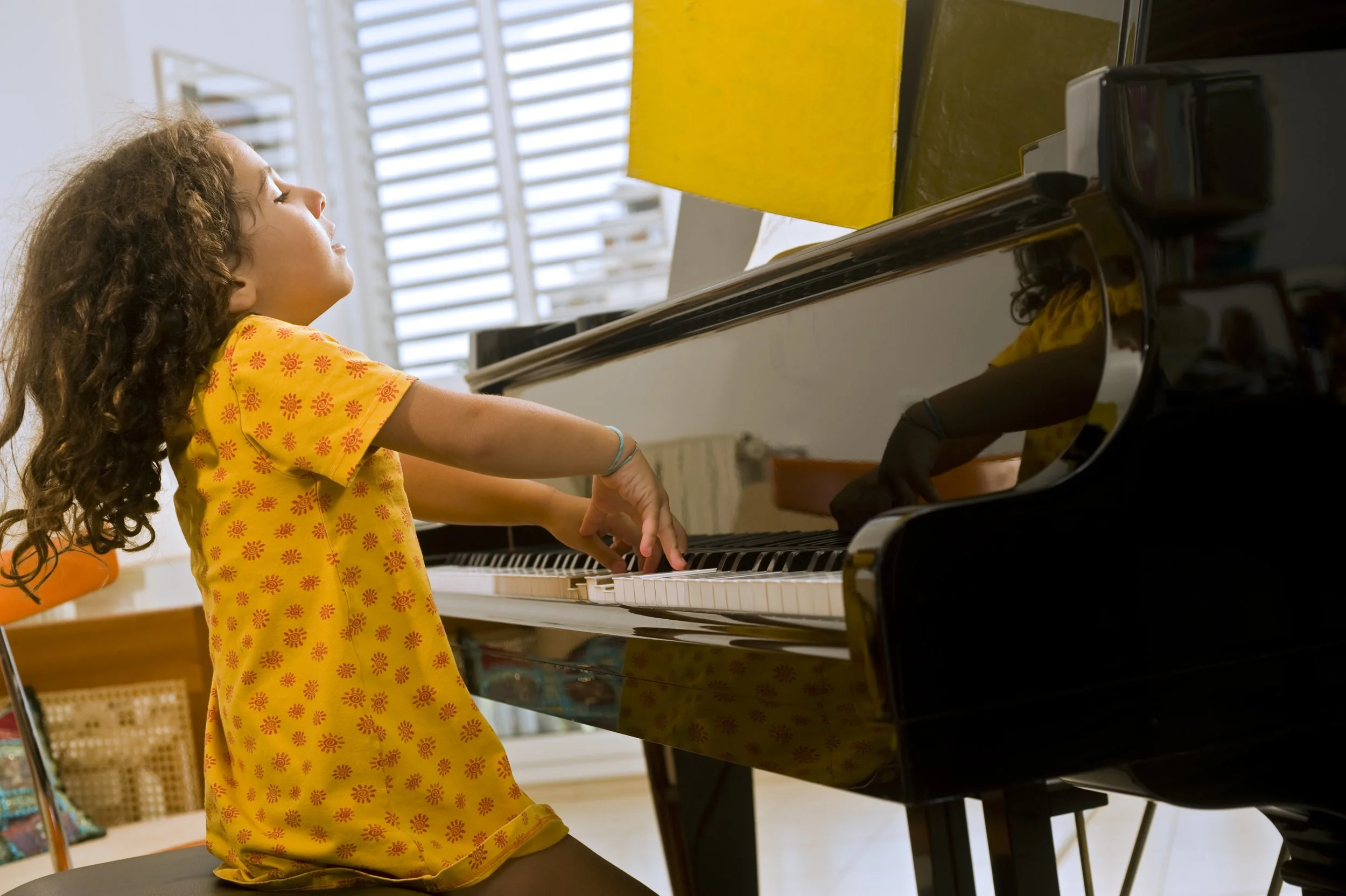Musical study offers a multitude of benefits for individuals of all ages. Along with the benefit of knowing how to play your favourite songs, here are some key advantages!
Cognitive Development: Engaging in musical activities stimulates various areas of the brain, promoting cognitive development and enhancing memory, attention, and problem-solving skills. It’s also seen to strengthen mathematical, language, and spatial reasoning abilities.
Emotional Expression: Music has the power to express and relieve emotions in a healthy way. Learning to play an instrument or sing enables individuals to channel their emotions, providing an outlet for self-expression, creativity, and stress relief.
3. Coordination and Motor Skills: Playing an instrument requires precise movements and coordination between hands, fingers, and sometimes feet. Regular practice enhances fine motor skills, hand-eye coordination, and overall dexterity.
4. Discipline and Time Management: Mastering an instrument requires dedication and consistent practice. Musical study cultivates discipline, patience, perseverance, and effective time management skills, which benefit all areas and stages of life.
5. Social Connection: Jamming with friends and family and participating in music ensembles, bands, or choirs fosters social connections and teamwork. It provides opportunities to collaborate, communicate, and build relationships with fellow musicians, creating a sense of belonging and community.
6. Confidence and Self-Esteem: As individuals progress in their musical abilities and achieve milestones, their confidence and self-esteem grow. Performing in front of others and receiving positive feedback further boosts self-assurance.
7. Cultural Appreciation: Musical study exposes individuals to a wide range of musical genres, styles, and traditions, promoting cultural appreciation and understanding.
8. Lifelong Enjoyment: Musical study instills a lifelong love and appreciation for music. It opens doors to exploring different genres, attending concerts, and enjoying the beauty and emotional impact of music.
At Volo Academy of Music, we're passionate about sharing the incredible benefits of music. From boosting cognitive abilities to fostering creativity and confidence, our lessons offer endless advantages. It’s a honour to witness the transformative power of music in our students. With a wide range of instrument lessons available, including piano, guitar, voice, bass guitar, violin, saxophone, clarinet, and African Drums, we provide you and your loved ones the opportunity to explore the world of music, and experience its enriching impact. Discover for yourself how it can enhance your life.
Contact us now to start or continue your musical journeys!
Cheers,
Kimberly Wong
Owner
Volo Academy of Music






















